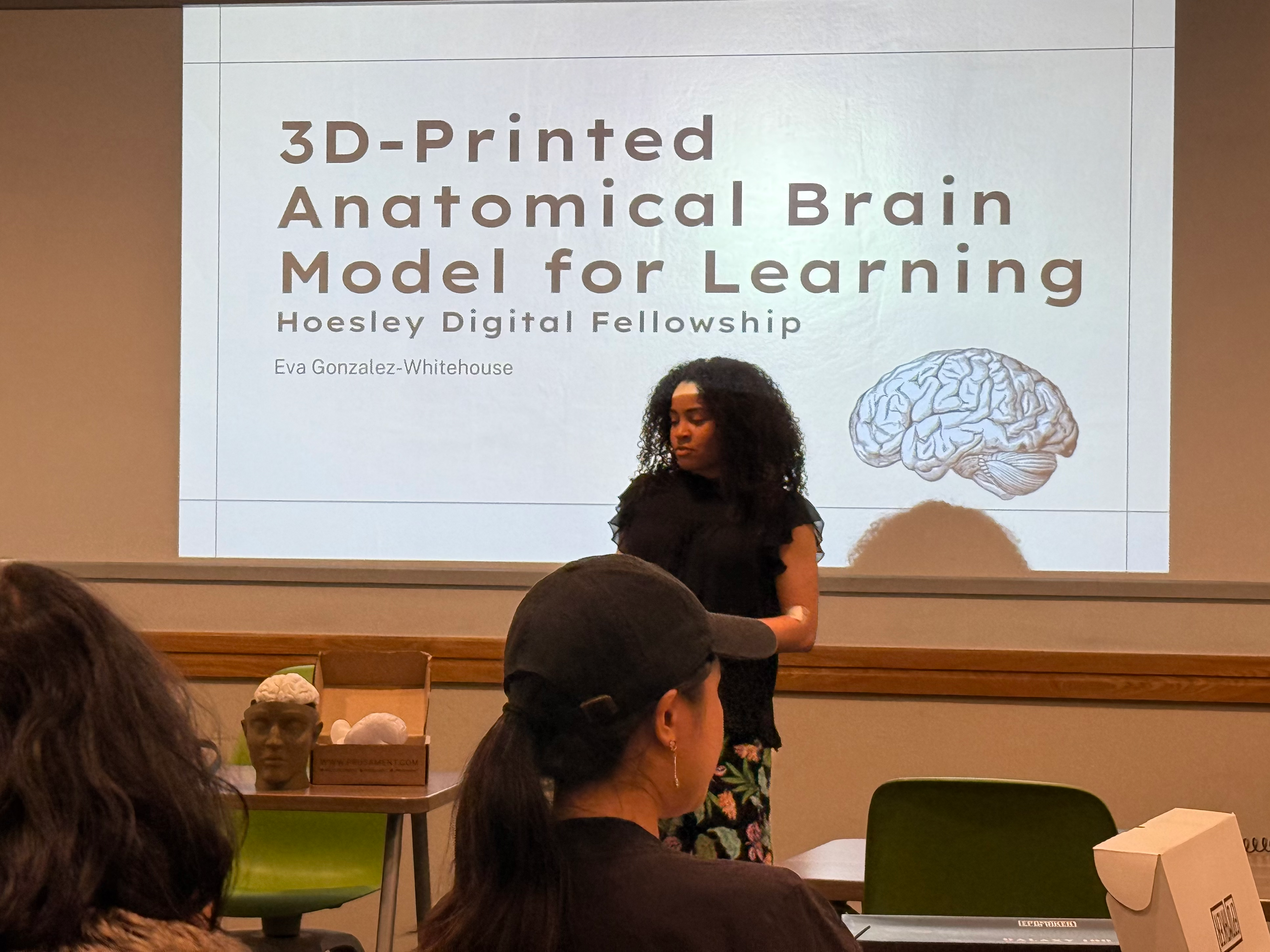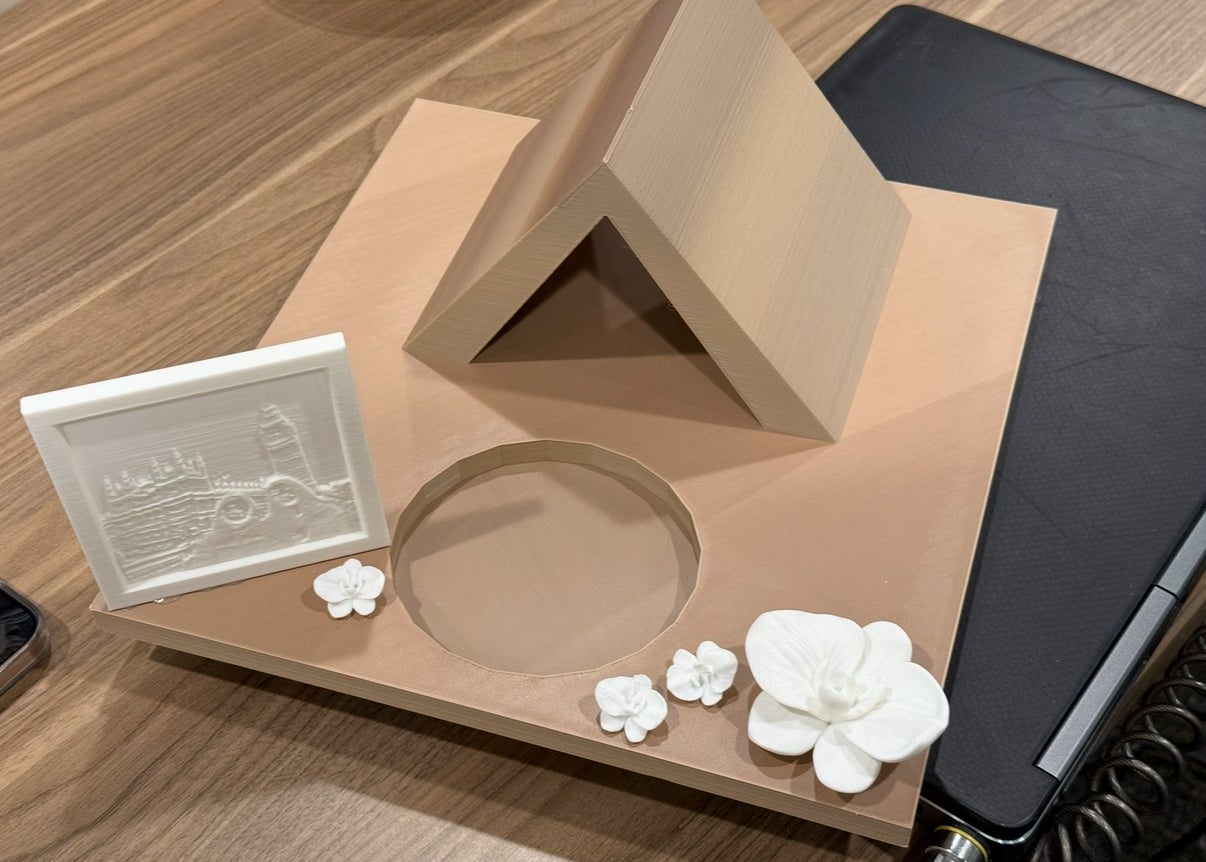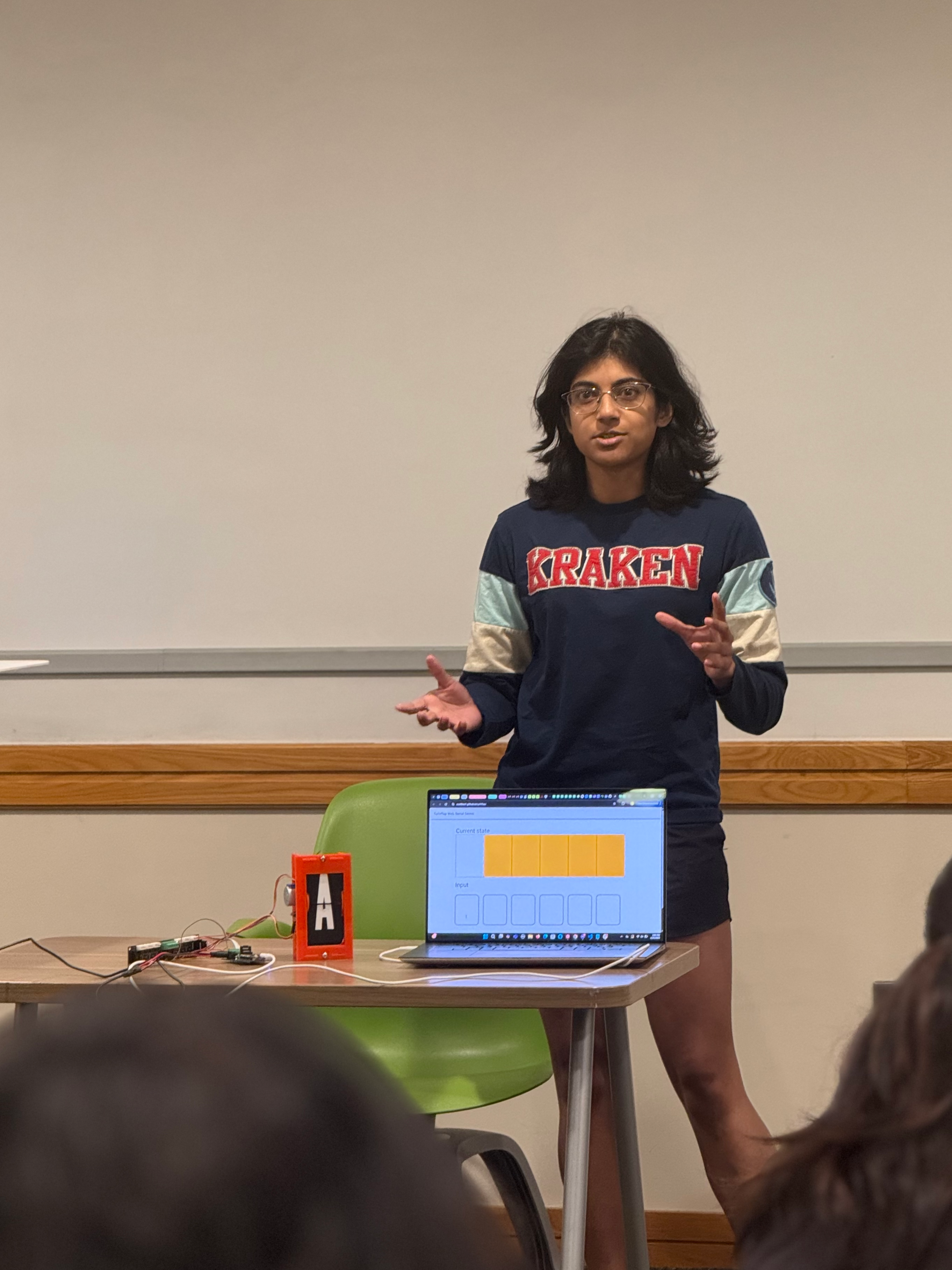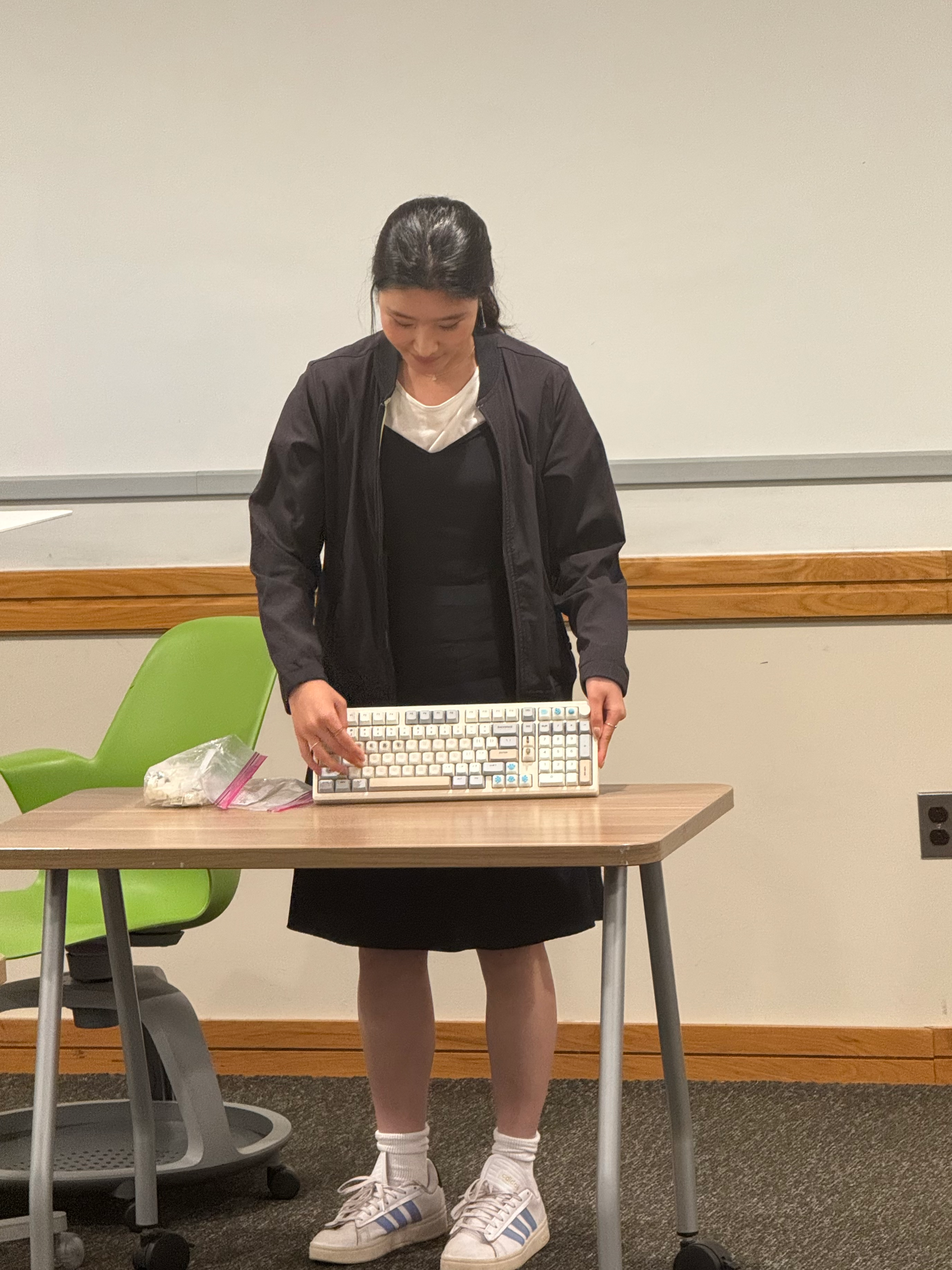Hoesley Digital Literacy Fellows Showcase Innovation and Skills
On April 26, 2025, the Hoesley Digital Literacy Fellows delivered their final presentations, showcasing innovative projects developed with the guidance of Tex and Christine, in the Goldstein Classroom.

Interdisciplinary Excellence
The Hoesley Digital Literacy Fellows Program continues its mission of empowering Penn juniors and seniors to develop critical digital literacy competencies and establish robust professional online identities. This initiative integrates comprehensive resources and specialized expertise from the Learning Enrichment team to facilitate students' technological advancement.
While applications for the Fall 2025 cohort have temporarily closed, we enthusiastically anticipate welcoming prospective applicants in the near future. For detailed program information and application procedures, please visit the Hoesley Digital Literacy Fellows Program page.
This year's distinguished cohort is from diverse academic disciplines, including Neuroscience, Philosophy, Mechanical Engineering, Economics, Design and Applied Arts, and Business. This multidisciplinary composition enhances the collaborative learning environment and fosters innovative approaches to digital challenges through cross-disciplinary perspectives.
Comprehensive Development
Fellows engage in extensive interactive workshops covering advanced technological tools and methodologies, encompassed:
- Professional audio production at the Hechtman Recording Studio
- Vector-based design applications for digital fabrication
- Advanced 3D printing techniques
- Arduino programming and implementation
- Artificial intelligence applications
- Design thinking frameworks for project conceptualization
Additionally, our strategic partnership with Career Services enhanced participants' professional development through specialized sessions on:
- Advanced interviewing techniques through Interviewing Improv
- Strategic approaches to contemporary job search methodologies
- Establishing and maintaining a distinguished professional digital presence
Capstone Project Presentations
Tex and Christine provided ongoing guidance throughout the program as students developed innovative projects. Steve helped with project management and organizing the meeting, ensuring the program ran smoothly. On April 25th, four exceptional Fellows demonstrated their creative projects:
Eva E Gonzalez-Whitehouse: Anatomical Visualization Through 3D Printing
Eva developed a sophisticated 3D printed neuroanatomical model featuring eight anatomically accurate, color-differentiated components that facilitate enhanced visual comprehension of brain structure. The model presents detailed representations of the cerebrum, brainstem, and cerebellum.
This project required approximately 20 hours of development for the comprehensive model plus 8 hours for the primary brain structure, and up to 8 additional hours for each discrete component. Utilizing advanced 3D scanning technology, Eva created a model that enables precise identification of neurological structures and functional regions.

Eva further expanded her project by incorporating brain-computer interface technology through the Neurosky MindWave 2, utilizing Arduino programming to interpret electroencephalographic data and analyze brainwave patterns.

Melissa Liu: Multifunctional Literary and Culinary Accessory
Melissa engineered a multifunctional device that serves as both a book support and beverage holder. Her independently designed model incorporates integrated illumination that accentuates decorative portrait and floral elements. In ongoing development, Melissa plans to introduce an enhanced version featuring programmable LED illumination with WiFi connectivity, enabling remote chromatic customization.

Riya Nandakumar: Computational Kinematics Implementation
Riya leveraged multiple integrated development environments, including Visual Studio and Python, to create software that generates fluid kinematic animations. Her development process embraced both technical programming and creative visualization techniques.
Her project culminates in a functional system featuring physical numeric displays that respond to digital input. While material constraints necessitated a reduction from the originally conceptualized six display boards, her software effectively demonstrates the intended mechanical functionality.
Her project culminates in a functional system featuring physical numeric displays that respond to digital input. While material constraints necessitated a reduction from the originally conceptualized six display boards, her software effectively demonstrates the intended mechanical functionality.

Zoe A Lu: Customized Keyboard
Zoe presented a comprehensively modified keyboard featuring proprietary keycaps with enhanced ergonomic and visual characteristics. Beginning with a commercial mechanical keyboard base, Zoe implemented systematic modifications to the keycap array, resulting in a personalized interface optimized for individual preferences. Her specialized design includes:
- Phosphorescent key markings for low-light visibility
- Tactile character indentations for enhanced haptic feedback
- Modular keycap system allowing ongoing customization
- Versatile connectivity options including wireless and USB interfaces

We sincerely thank Tex, Christine, Steve, and Michael from Career Services for their consistent support and expertise throughout the program. Special recognition is also extended to colleagues from various departments, including the Communications team, Student Engagement, and RDDSx, for their attendance at the final presentation and ongoing support of the Fellows' professional development.
Future Directions
The Hoesley Digital Literacy Fellows Program remains committed to providing Penn students with opportunities to cultivate advanced technical competencies that complement their academic pursuits. We look forward to seeing how future program participants will apply these digital literacy skills to drive innovation and excellence.
Date
April 29, 2025
